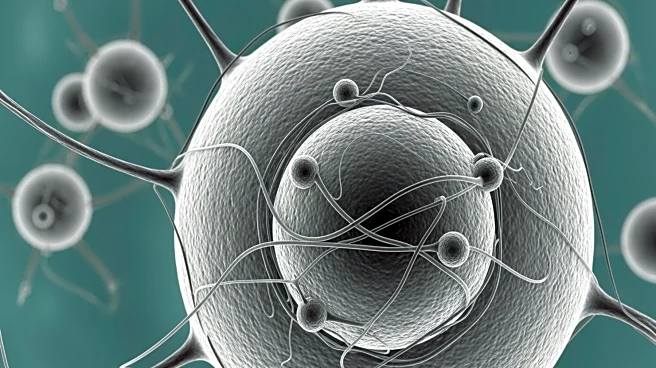What's Happening?
Scientists at The Rockefeller University have developed the first cellular atlas of the Aedes aegypti mosquito, a major vector for diseases like dengue and Zika. The Mosquito Cell Atlas provides detailed
gene expression profiles across various tissues in both male and female mosquitoes. This comprehensive dataset reveals novel cell types and expands understanding of sensory neuron organization. The atlas also highlights differences in genetic expression between male and female mosquitoes, particularly after blood feeding, which affects the female mosquito's behavior.
Why It's Important?
The creation of this cellular atlas is a significant step in understanding the biology of Aedes aegypti mosquitoes, which are responsible for transmitting numerous diseases. By identifying novel cell types and understanding the genetic changes that occur after blood feeding, researchers can better target interventions to control mosquito populations and reduce disease transmission. This resource could lead to the development of new strategies for mosquito control and disease prevention, benefiting public health efforts globally.








